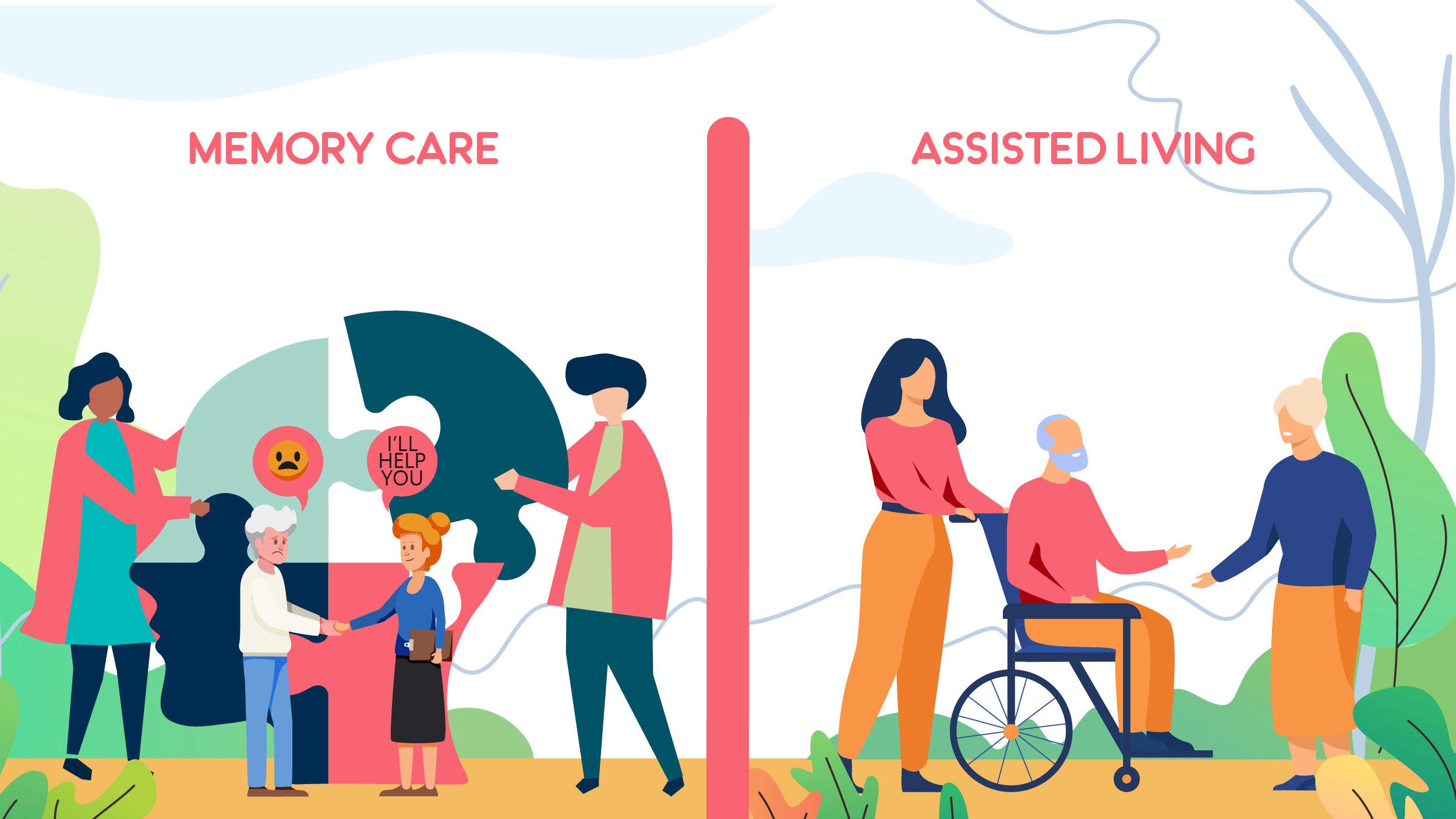Creating a Safe and Encouraging Atmosphere for Alzheimer's Care
The development of a risk-free and helpful environment for people with Alzheimer's is critical in enhancing their quality of life. This involves not just physical adjustments within the home, such as minimizing threats and including familiar elements, but additionally the implementation of organized routines and purposeful activities that cater to their cognitive needs. Moreover, recognizing the mental and emotional dimensions of treatment can considerably affect their complacency and link. Discovering these complex approaches can disclose essential understandings right into reliable caregiving approaches that may change the day-to-day experiences of both individuals and caretakers.
Recognizing Alzheimer's Requirements
Frequently, individuals with Alzheimer's illness display a variety of needs that call for tailored techniques to care. As the problem progresses, cognitive decline materializes in numerous means, affecting memory, reasoning, and also the capacity to execute everyday activities. Caregivers have to identify these advancing requirements to provide proper assistance and ensure a better of life for those impacted.
One vital facet of comprehending Alzheimer's requirements is acknowledging the value of regular and familiarity. People often locate convenience in recognized patterns, which can reduce anxiety and confusion. Caregivers need to make every effort to produce structured day-to-day routines that incorporate significant tasks straightened with the individual's capacities and passions.
Furthermore, efficient communication is critical. People with Alzheimer's might struggle to share themselves or comprehend complex language. Caretakers should employ basic, clear language, usage non-verbal cues, and practice active paying attention to promote understanding and connection.
Finally, emotional and social requirements can not be ignored. Offering chances for social communication and maintaining relationships can significantly boost psychological wellness. Caretakers need to encourage interaction in community tasks or household gatherings, promoting a feeling of belonging and function. Understanding these diverse requirements is necessary for producing an encouraging care setting.
Creating a Safe Home
Producing a risk-free home for individuals with Alzheimer's condition is important to minimizing threats and promoting independence. The design of the space ought to prioritize safety while enabling personal comfort. Get rid of prospective dangers such as loosened carpets, sharp objects, and mess, which can lead to falls or crashes. Make sure that pathways are well-lit and clear, as appropriate lighting lowers disorientation and enhances wheelchair.
Including adaptive attributes is also crucial. Install grab bars in bathrooms and near stairs, and think about using non-slip floor coverings in wet locations. In addition, making use of contrasting colors for walls and floorings can assist in differentiating spaces, assisting to minimize complication.
Experience is very important for people with Alzheimer's. Personalizing the environment with acquainted items and photographs can enhance a feeling of belonging and safety and security - Alzheimers Care Charlotte. It is also valuable to have an assigned location for everyday activities, such as analysis or crafting, which can provide structure to their day
Lastly, executing a protected outside space permits risk-free expedition while connecting with nature. By thoughtfully developing the home setting, caregivers can significantly boost the lifestyle for people dealing with Alzheimer's disease.
Enhancing Communication Abilities

Non-verbal interaction, consisting of faces, motions, and touch, plays a vital role in sharing empathy and understanding. Keeping eye call and a calm demeanor can boost the convenience level of the individual, promoting a sense of safety and security.
Moreover, it is necessary to practice active listening. This includes being totally existing, revealing perseverance, and permitting the individual to share themselves without disturbance. Repetition may be required; caretakers must be prepared to review subjects or concerns, as individuals with Alzheimer's may deal with memory recall.
In addition, making use of visual aids or cues, such as pictures or familiar things, can help with recognition and interaction. Ultimately, enhancing interaction skills is regarding building count on and creating a setting where individuals really feel listened to, valued, and recognized, thus improving their quality of life.
Motivating Social Interaction
Fostering purposeful social interactions can greatly enhance the well-being of individuals with Alzheimer's disease. Involving with others not only assists battle sensations of seclusion however likewise boosts cognitive function and emotional health and wellness. Structured social activities, such as group arts, crafts and video games, or songs treatment, produce possibilities for homeowners to get in touch with peers and caregivers, which can result in improved state of mind and minimized stress and anxiety.
Producing an inviting atmosphere that motivates socializing is crucial. This can be achieved by arranging common areas that help with communication, such as comfortable seating locations or activity rooms. Additionally, incorporating familiar and culturally relevant tasks can trigger memories and encourage engagement, enabling people with Alzheimer's to really feel more learn the facts here now linked to their previous experiences.
In addition, caregivers ought to be trained to recognize and promote social engagement amongst residents. Easy motions, such as launching conversation or facilitating tiny team discussions, can help individuals really feel valued and included. Routinely scheduled social occasions need to be consistent yet versatile, accommodating varying degrees of capability and rate of interest. By prioritizing social communication, we can significantly improve the lives of those living with Alzheimer's, cultivating a sense of area and belonging.
Supporting Caregiver Well-being

To support caregivers, organizations ought to use routine anonymous training and instructional sources to improve their understanding of Alzheimer's condition and caregiving strategies. Providing accessibility to break treatment services enables caretakers to take needed breaks, reducing tension and exhaustion - Alzheimers Care Charlotte. Furthermore, fostering a community with assistance groups can help with emotional sharing and the exchange of sensible suggestions among caregivers, developing a network of shared assistance
Mental health and wellness resources, such as therapy services, can additionally be important in attending to the emotional toll caregiving can take. By prioritizing caretaker health, we create an even more lasting caregiving environment that not only benefits the caretakers themselves however also enhances the total high quality of treatment gotten by individuals with Alzheimer's. Ultimately, supporting caregivers is an important element in cultivating a caring and reliable treatment setup.
Final Thought
To conclude, the development of a risk-free and helpful environment for individuals with Alzheimer's is vital to enhancing their high quality of life. By focusing on safety and security via thoughtful design, fostering psychological wellness with acquainted components, and advertising engagement via structured regimens, caregivers can significantly impact the total experience of those affected by this problem. Furthermore, sustaining caretaker health is crucial, as it inevitably contributes to a much more reliable and thoughtful treatment setting.
Rep might be essential; caregivers ought to be prepared to revisit questions or topics, as individuals with Alzheimer's might battle with memory recall.
